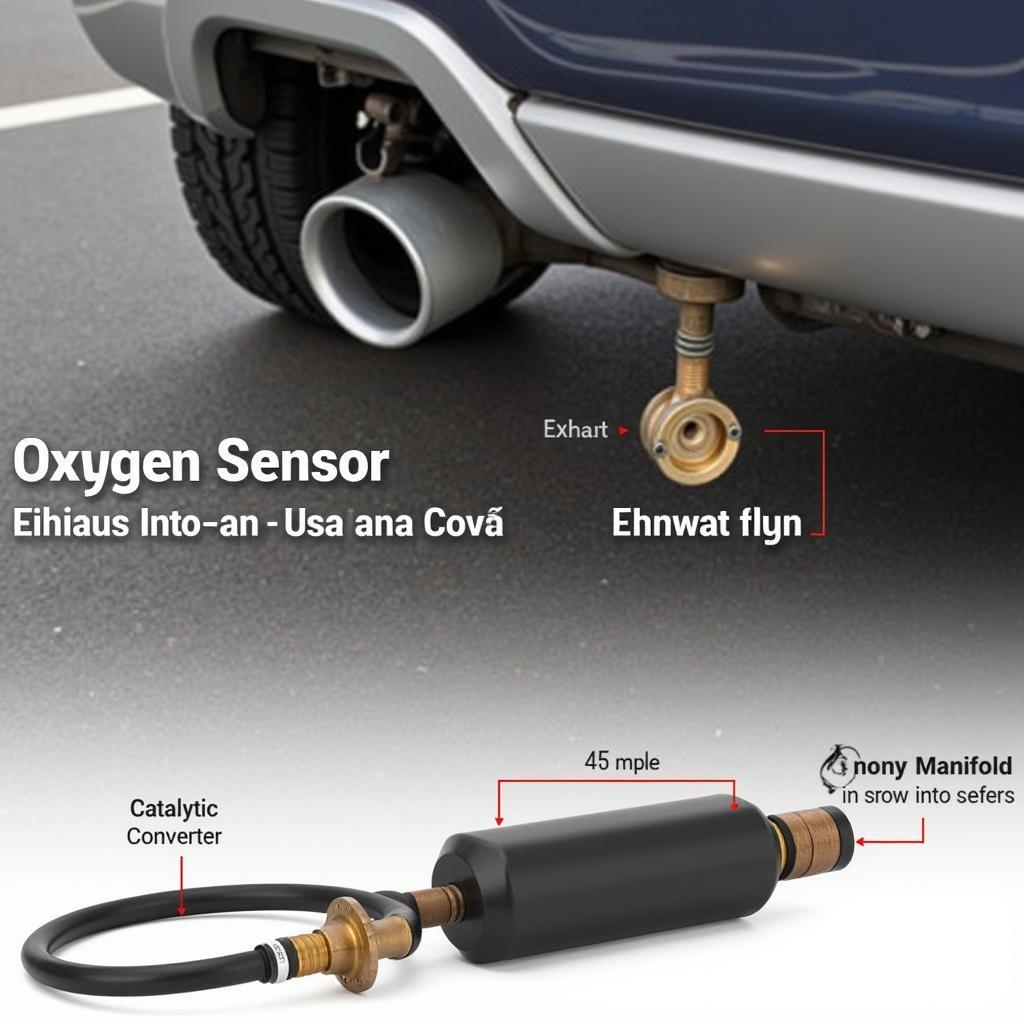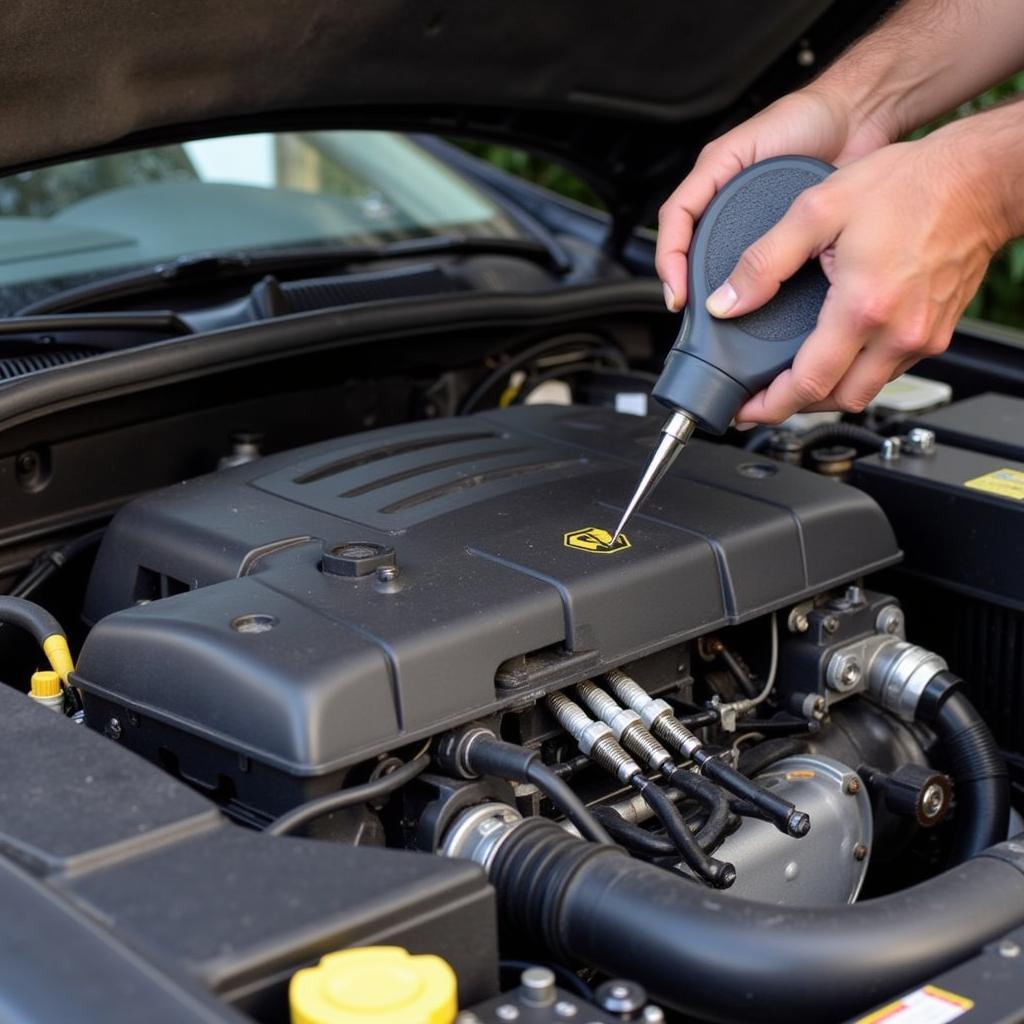Car Tire Problems can range from a slow leak to a complete blowout, impacting your safety and driving experience. Understanding the common issues, preventative measures, and solutions will keep you rolling smoothly and safely. This guide will provide you with a deep dive into everything related to car tire problems, from identifying the issue to finding the right fix.
Understanding Common Car Tire Problems
Several factors can lead to car tire problems. Recognizing the signs early can save you money and potential hazards on the road.
Tire Pressure Issues
One of the most frequent car tire problems involves incorrect tire pressure. Underinflated tires increase rolling resistance, impacting fuel efficiency and increasing wear and tear, particularly on the outer edges. Overinflation, on the other hand, reduces traction and can lead to uneven wear in the center of the tire. Regularly checking your tire pressure with a reliable gauge and maintaining the recommended PSI (found in your owner’s manual or on a sticker inside the driver’s side doorjamb) is crucial.
- Regularly check tire pressure using a reliable gauge.
- Maintain the recommended PSI for optimal performance.
Punctures and Flats
Punctures are another common car tire problem. Nails, screws, or sharp debris can penetrate the tire, causing air leakage. A slow leak might be barely noticeable at first, while a larger puncture can lead to a sudden flat. Knowing how to change a tire is a vital skill for any driver.
- Park on a level surface and engage the parking brake.
- Locate your spare tire, jack, and lug wrench.
- Loosen the lug nuts before jacking up the car.
- Lift the car until the flat tire is off the ground.
- Remove the lug nuts and the flat tire.
- Mount the spare tire and tighten the lug nuts hand-tight.
- Lower the car and fully tighten the lug nuts in a star pattern.
Uneven Tire Wear
Uneven tire wear can signal a variety of car tire problems. Alignment issues, worn suspension components, or even improper inflation can cause tires to wear unevenly. Regularly rotating your tires can help promote even wear, but addressing the underlying mechanical issue is essential for long-term tire health and optimal vehicle handling.
- Rotate tires according to your vehicle manufacturer’s recommendations.
- Have your wheel alignment checked periodically.
Tire Damage and Degradation
Over time, exposure to the elements can cause tire damage and degradation. UV rays, extreme temperatures, and road chemicals can weaken the tire’s rubber compound, leading to cracking and dry rot. Inspect your tires regularly for signs of damage, such as cuts, bulges, or cracks. If you notice any significant wear or damage, replace the tire promptly.
Preventing Car Tire Problems
Proactive maintenance is key to preventing car tire problems. Regular inspections, proper inflation, and timely rotations will extend the life of your tires and ensure a safe driving experience.
“Regular tire maintenance not only saves you money in the long run but also contributes significantly to road safety,” says John Miller, Senior Automotive Engineer at TireTech Solutions.
Car Tire Problem: Seeking Professional Help
While some car tire problems can be addressed with DIY solutions, others require professional expertise. If you’re unsure about the cause of your tire issue or uncomfortable performing repairs yourself, consult a qualified mechanic. They have the knowledge and tools to diagnose and fix any car tire problem effectively.
“Don’t underestimate the importance of seeking professional help when needed. A seemingly minor tire issue could indicate a more serious underlying problem,” advises Sarah Chen, Lead Mechanic at AutoRepair Pro.
Conclusion
Addressing car tire problems promptly and proactively is crucial for both safety and performance. By understanding the common issues, practicing preventative maintenance, and knowing when to seek professional help, you can keep your car running smoothly and safely on the road. If you need further assistance with your car tire problem or any other automotive issue, feel free to connect with us at AutoTipPro. Call us at +1 (641) 206-8880 or visit our office at 500 N St Mary’s St, San Antonio, TX 78205, United States.
FAQ
- How often should I check my tire pressure? At least once a month and before long trips.
- How do I know if my tires need to be rotated? Consult your owner’s manual for the recommended rotation schedule.
- What are the signs of a bad wheel alignment? Uneven tire wear, pulling to one side, or a crooked steering wheel.
- How long do tires typically last? Tire lifespan varies depending on driving habits and conditions, but typically ranges from 3-5 years.
- What is the difference between all-season and summer tires? All-season tires offer a compromise between summer and winter performance, while summer tires are designed for optimal grip in warm, dry conditions.
- Can I repair a punctured tire? Small punctures can sometimes be repaired, but larger punctures or damage to the sidewall require tire replacement.
- What is TPMS and how does it work? TPMS (Tire Pressure Monitoring System) is a system that monitors tire pressure and alerts the driver if pressure drops below a certain threshold.







Leave a Reply